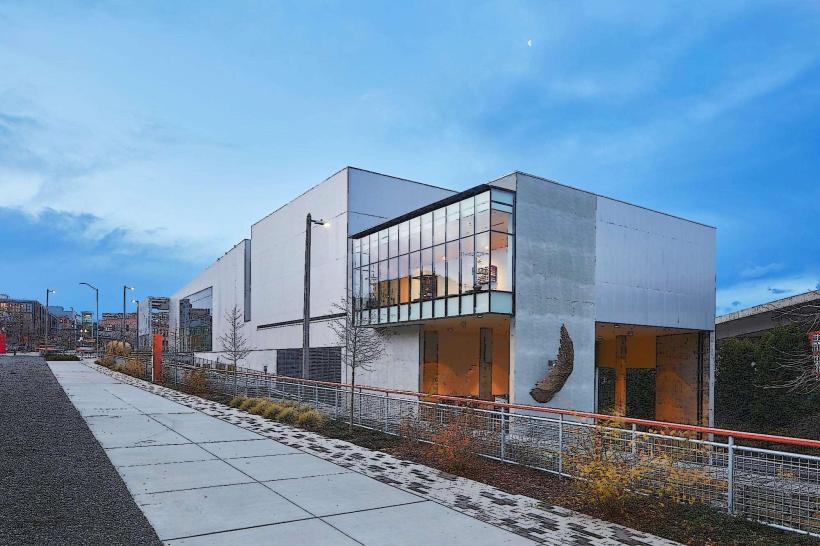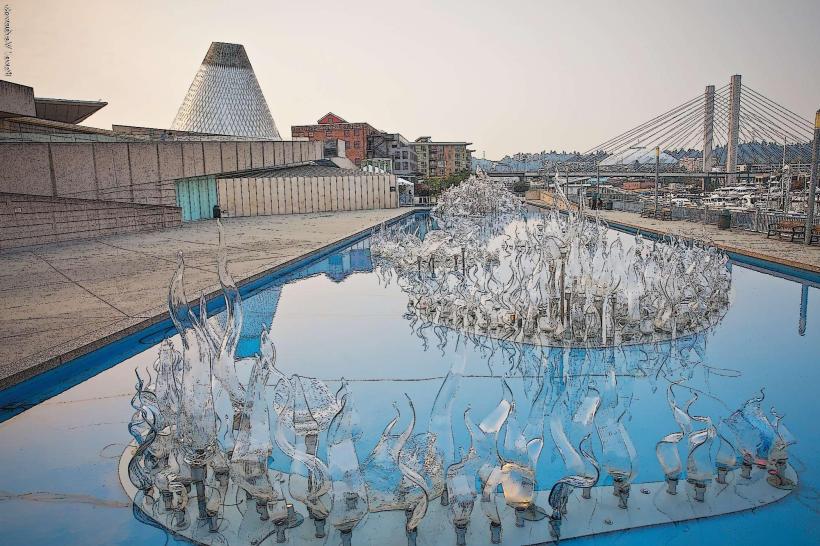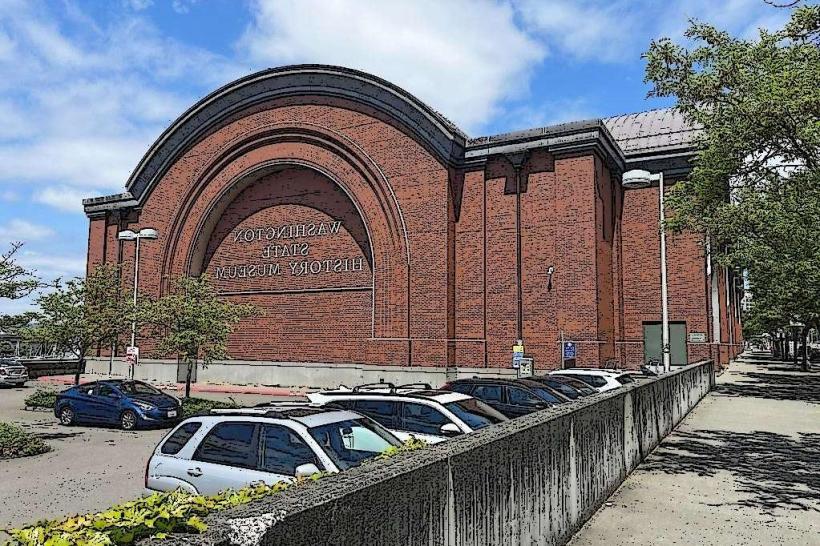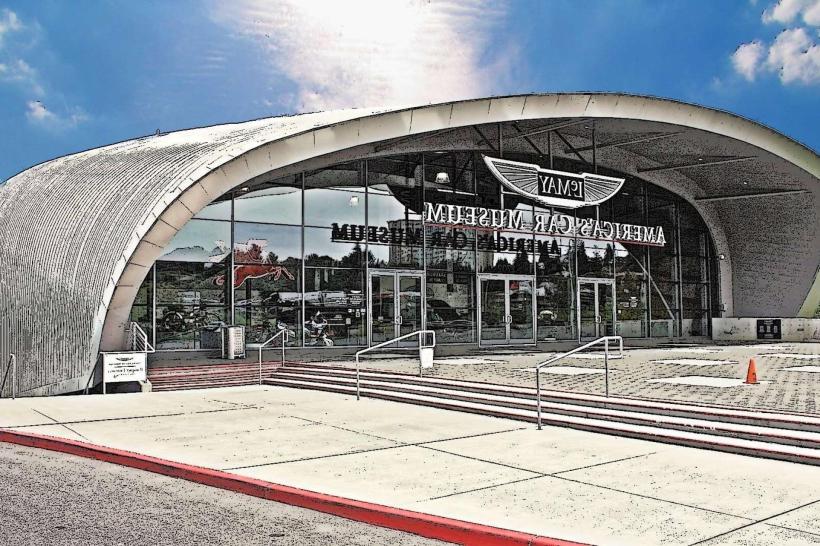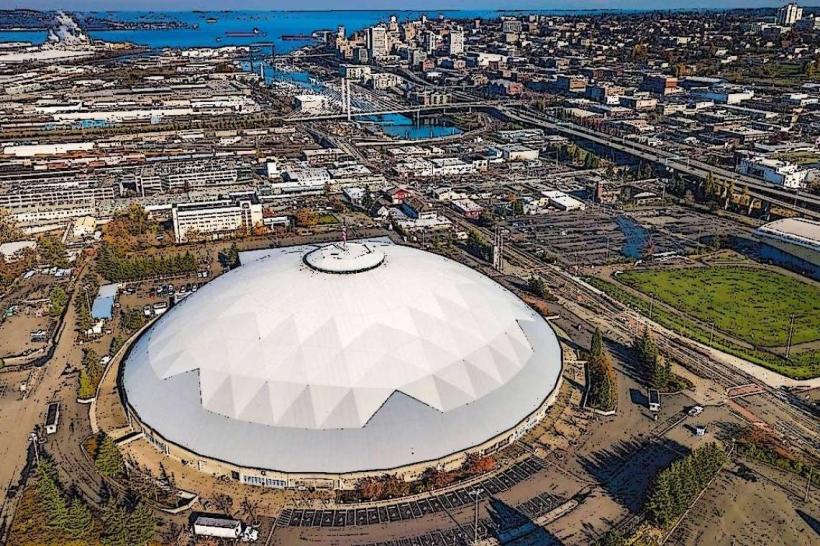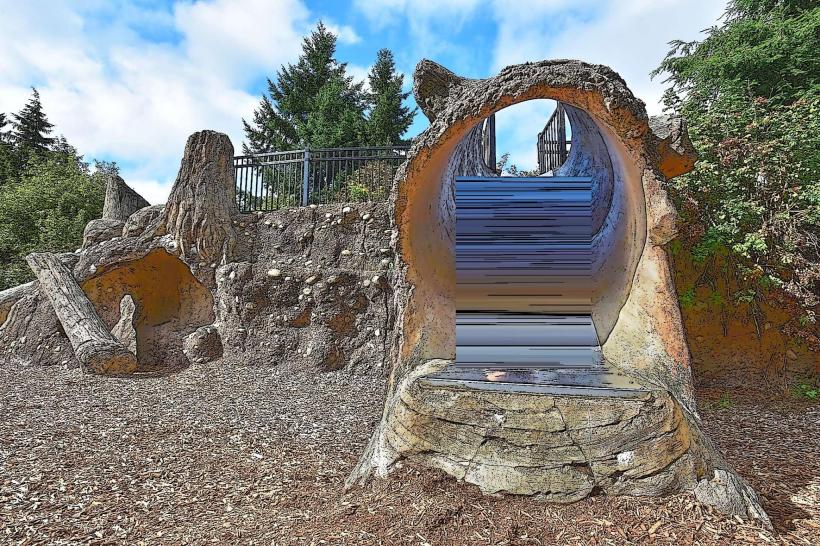Information
Landmark: Wright ParkCity: Tacoma
Country: USA Washington
Continent: North America
Wright Park, Tacoma, USA Washington, North America
Wright Park is a historic and expansive urban green space located in the heart of Tacoma, Washington. Spanning approximately 27 acres, it stands as one of the city’s oldest and most treasured parks, offering a unique combination of botanical diversity, architectural beauty, public art, and recreational amenities. Established in 1886, Wright Park reflects Tacoma’s commitment to preserving natural landscapes and providing a peaceful retreat within the urban environment.
Arboretum and Botanical Significance
At the core of Wright Park’s appeal is its role as a living arboretum. The park is home to over 600 trees representing around 145 different species from across the globe, including North America, Europe, Asia, and South America. Many of these trees are mature specimens that have been growing for more than a century, contributing to the park’s serene and shaded atmosphere. Several of these trees have been officially designated as Washington State Champion Trees due to their exceptional size, age, and rarity.
Among the notable trees in the park are:
Red Oak (Planted 1903): Dedicated to commemorate President Theodore Roosevelt’s visit to Tacoma.
Gray Birch (Planted 1929): Dedicated as a tribute to all mothers of the city.
Giant Sequoia (Planted 1939): Planted to mark the 150th anniversary of the U.S. Constitution.
Visitors can explore these remarkable trees via a self-guided arboretum tour that provides detailed information about the park’s botanical collection, encouraging both education and appreciation of diverse tree species.
W.W. Seymour Botanical Conservatory
A centerpiece of Wright Park is the W.W. Seymour Botanical Conservatory, an elegant Victorian-style glasshouse constructed in 1907. This architectural gem was designed by Isaac J. Knapp and features a distinctive twelve-sided central dome with expansive glass panels supported by a steel framework. The conservatory is a showcase of botanical beauty, housing more than 550 plant species within its climate-controlled environment.
Inside, visitors experience a lush display of exotic and native plants, including orchids, palms, ferns, and azaleas. Seasonal and thematic floral exhibits rotate throughout the year, typically displaying between 300 and 500 blooming plants at any time. The conservatory’s meticulously maintained environment provides a vibrant contrast to the surrounding outdoor arboretum, allowing guests to enjoy a tropical and subtropical plant collection regardless of the season.
Public Art and Sculptures
Wright Park is also renowned for its rich collection of public art and sculptures, adding cultural and historical layers to the visitor experience. Some of the most significant works include:
Annie and Fannie Statues: These twin statues depict Greek maidens and were originally donated in 1891. They were restored and remounted on marble bases in 2009, standing as enduring symbols of the park’s heritage.
Bust of Henrik Ibsen: A bronze bust honoring the famous Norwegian playwright, installed in 1913 by Tacoma’s Norwegian community, symbolizing the cultural ties of local immigrant populations.
Fisherman’s Daughter (The Lady of the Lake): A classic sculpture acquired in 1891 and restored in 2013, representing mythic and artistic elements connected to nature and water.
Trilogy: Created by artist Larry Anderson in 1978, this bronze sculpture portrays three children running and is believed to be Tacoma’s first public artwork depicting African American figures, representing inclusivity and community spirit.
Recreational Facilities and Accessibility
Wright Park offers a modern, inclusive playground and sprayground designed with input from the local community to accommodate children of all abilities. Opened in 2011, the playground features soft rubberized and wood fiber surfaces for safety, adaptive play structures such as ramps and spin-and-seat transfer devices, sensory-rich elements like musical instruments and manipulatives, and shaded areas for rest and supervision. These features ensure that the park remains welcoming and accessible to families, children with disabilities, and caregivers alike.
Beyond play areas, the park includes walking paths winding through lush greenery and mature trees, picnic spots, benches for relaxation, and open lawns that invite informal gatherings or quiet reflection. The tranquil environment encourages visitors to enjoy nature, exercise, or simply unwind away from the city bustle.
Location, Hours, and Amenities
Wright Park is located at 501 South I Street in Tacoma, offering convenient access from downtown and surrounding neighborhoods. The park is open daily, typically from half an hour before sunrise to half an hour after sunset, allowing visitors to enjoy early morning walks or sunset views.
Amenities within and around the park include restrooms, drinking fountains, picnic tables, and benches. On-street parking is available nearby, and the park is served by public transportation, making it accessible for residents and tourists alike. Seasonal programs such as free summer lunch offerings for children further enhance the community-focused spirit of Wright Park.
Historical and Community Importance
Since its establishment in the late 19th century, Wright Park has served as a vital green space promoting environmental stewardship, cultural enrichment, and recreational opportunities. The park’s arboretum and conservatory have made it a center for botanical education and conservation efforts. Public art installations connect visitors with Tacoma’s diverse cultural heritage, while the inclusive playground and recreational amenities foster community health and social interaction.
Managed by Metro Parks Tacoma, Wright Park remains a vibrant urban oasis where history, nature, and art intertwine. It continues to attract residents and visitors who seek a harmonious blend of peaceful natural settings and enriching cultural experiences within the city.
In essence, Wright Park is a multifaceted urban park that offers visitors the chance to engage deeply with nature, architecture, art, and community. Its expansive arboretum, historic conservatory, significant sculptures, and inclusive recreational spaces create a well-rounded and meaningful destination in Tacoma’s city landscape.

